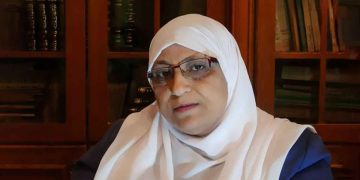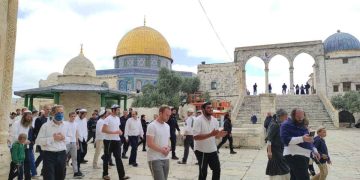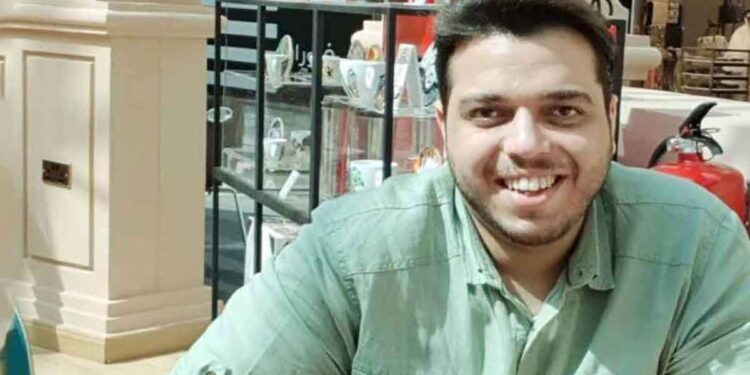Human Rights Watch (HRW) called on the Qatari authorities to hold a fair trial for a Jordanian citizen, after a Qatari court ignored allegations of confessions made under intimidation and coercion.
In a statement, HRW stressed that “Qatari authorities should ensure a fair trial for a 35-year-old Jordanian man who is appealing a five-year prison sentence for offenses including misuse of funds and bribery. The lower court trial of Abdullah Ibhais, which concluded in April 2021, ignored credible allegations that his confession, the basis of the prosecution’s case, was obtained via intimidation and coercion.”
Abhis, who was the director of media and communications for hosting the 2022 FIFA World Cup organizers in Qatar, had been charged with seeking a bribe to award contracts, while Abhis confirmed to HRW that the accusations were retaliatory, due to his criticism of the Qatari authorities’ handling of a migrant workers’ strike in Qatar in August 2019, which was documented by HRW at the time.
“Qatari authorities appear to have robbed Abdullah Ibhais of his right to a fair trial in proceedings that raise serious concerns about Qatar’s justice system,” said Michael Page, deputy Middle East director at Human Rights Watch. “The authorities should immediately investigate allegations that his confession was coerced and whether the Supreme Committee used the justice system to retaliate against an employee for internal criticism.”
HRW confirmed that it had examined the court judgment, in addition to the testimony of four witnesses, and other documents, “The judgment indicates that Ibhais’s confession was central to his conviction of “bribery,” “violation of the integrity of tenders and profits,” and “intentional damage to public funds,” for which he received a five-year prison sentence and a fine of 150,000 Qatari riyals (US$41,197) on April 29.”
HRW added that “the court ignored the documented allegations that the Qatari Criminal Investigation Department officers prevented him from contacting a lawyer and forced him to sign confessions. The rest of the evidence against Abhis was ambiguous, circumstantial and contradictory.”
The court ignored the defendant’s allegations that Criminal Investigations Department (CID) officers denied him access to legal counsel during his interrogation and coerced him into signing this confession,” stressing that “The analysis of the court documents and testimony suggests that the rest of the evidence against Abhis is vague, circumstantial, and in some cases contradictory.”
HRW pointed out that the charges brought against Abhis, his brother who lives in Turkey, and another Turkish citizen, relate to a tender for social media services organized by the 2022 World Cup Supreme Committee.
Abhis confirmed to HRW that in November 2019, the day of his arrest, he had gone to a meeting with the Supreme Committee of the tournament, to find six Qatari police officers waiting for him to arrest him. officers handcuffed him and took him to the CID offices in Duhail, in northern Doha. He was denied access to a lawyer and one officer told him that “we’ll break his leg [the lawyer’s] before he enters this facility”.
According to his testimony; Abhis was forced to sign confessions he did not make, after he was given the choice between signing the confessions – which were drafted by the investigation officers – or transferring him to the State Security (Qatari Intelligence) building, where they know how to get a confession out of him, according to the organisation’s statement. One of the officers told him that “if he signed, he could go home. When Ibhais refused, one of the officers said, “We will keep you there for six months, and nobody will know where you are.” At that point, he said, he agreed to sign”, according to HRW.
Abhis confirmed that after he signed the confessions, he was taken to his house, where he was forced to sign a consent form for them to search his house, where they confiscated all his phones, laptops, and tablets, and prevented him from seeing his wife and children, before taking him back to the intelligence building, where he was placed in a 6 x 4 meters cell with 14 other detainees.
HRW confirmed that on January 18, 2021, Abhis had received an email from the Court of First Instance asking him to attend the first session of his trial the next day, and the lawyer who attended with him submitted a request for copies of the case file, which he obtained shortly after a session was held on February 2, as well as on February 17, and last March 4.
Abhis said that in the last March 4 session, the judge abruptly ended the procedures, and announced that he would issue a verdict in the April 19 session. He also did not give Abhis any chance to speak before the judge, and the judge rejected a petition from a lawyer to present the defense case.
Abhis indicated that the court had found him guilty of misusing public funds, bribery, and collusion to commit the crime of bribery and causing harm to the Supreme Committee. His brother was sentenced in absentia and the court acquitted the Turkish person as Abhis confirmed that he never knew him before.
The Qatari court also rejected a petition submitted by Abhis to appeal against the confessions on which the court relied, and which were extracted from him under threat and duress during the interrogations he was subjected to in the intelligence and state security buildings, where he was denied the presence of a lawyer.
HRW affirmed that “no fair trial is possible when defendants do not have full access to their lawyer, prompt access to the evidence against them, and time and resources to prepare for trial, or if coercion was used to convict them.”


























